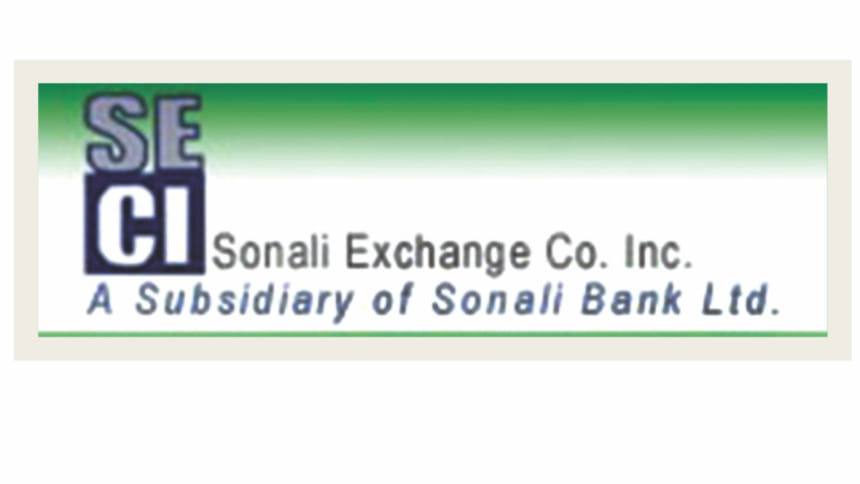BB asks Sonali to shutter its US exchange house
Bangladesh Bank has asked Sonali Bank to bring down the curtain on its loss-making exchange house in the US, which is yet to turn in any profits consistently despite injection of a total of $28 million since 1994.
With a view to facilitating remittance, the state-run lender had set up the Sonali Exchange Company Incorporation (SECI) 24 years ago with an initial capital of $250,000. It was gradually raised to $950,000.

Since its inception, SECI has repatriated profit of only $100,000. Between 1994 and 2016, its cumulative profit stood at $293,000.
Between 1995 and 2010, Sonali provided long-term loans of $1.85 million to the SECI at 5 percent interest.
The exchange house has repaid $600,000, meaning its overall liabilities stand at $1.25 million, as per Sonali.
But the central bank found that the state-run bank did not count any interest on its loans to SECI, which is a violation of the terms of the loan that the BB had signed off on. The annual report of SECI for 2013 showed that the exchange house had earlier issued promissory note against the loans -- at zero percent interest.
But the annual report of 2016 mentioned that the interest rate was 1 percent against the loans.
The two annual reports of the SECI mentioned contradictory information over the interest rate, which is again in violation of the central bank's instructions.
The exchange house's losses will widen significantly if the overdue loans along with the interest are calculated, according to the central bank's assessment paper.
Besides, remittance flow through SECI has been on the decline in recent years.
For instance, in 2005, expatriate Bangladeshis sent $170 million through SECI. The figure went down to $78.74 million in 2015 and $77.13 million in 2016.
The central bank issued a letter to Sonali Bank on February 18 advising it to rethink whether it wants to operate such a loss-making branch abroad.
Md Obayed Ullah Al Masud, managing director of Sonali Bank, told The Daily Star on Wednesday that his bank would monitor the exchange house strictly this year.
“We will shut down the outlet or take a major restructuring programme next year if the performance of the exchange house is not improved.”
Asked why the bank concealed the interest rate, he said there was no scope for hiding the interest rate.
The bank will recalculate the interest rate of the loans if required, Masud said.

 For all latest news, follow The Daily Star's Google News channel.
For all latest news, follow The Daily Star's Google News channel. 



Comments